Wyniki wyszukiwania
61 results for query Energy efficiency
Reports(29)
-
Heating transformation 2030 | Small district heating systems

87.5% (463 out of 529) of all district heating systems in Poland do not have the status of efficient systems. They must change this if they want to maintain access to public aid in the future and continue to provide Poles with heat at a reasonable price.
23.11.2017 -
The last bell for district heating in Poland

District heating in Poland urgently needs to be modernised. Negotiating transitional periods for EU legislation has so far allowed difficult decisions to be postponed. However, the deadlines are running. A comprehensive review of district heating systems is necessary.
24.10.2017 -
Polish energy sector 2050 | 4 scenarios

What will be the result if Poland keeps its energy mix based on coal, introduces nuclear power or promotes renewables? Forum Energii analysed four different scenarios for the development of the Polish energy sector over the next 30 years. Report presents the economic, social and environmental implications of their implementation.
22.9.2017 -
Ensuring reliability of the power system and capacity mechanisms
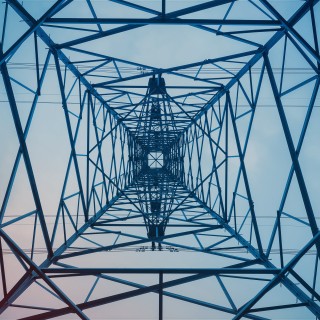
A stable and reliable supply of energy is the foundation of national energy security, yet it should not burden end users with excessive costs. On the one hand, it is important to keep electricity prices low, as they are the driving force behind economic development and provide opportunities for industrial development. On the other hand, wholesale energy prices should be sufficient to maintain the generating fleet. Since wholesale electricity prices fell to the lowest level in years, concerns have arisen over ensuring an adequate level of capacity and securing stable power system operations in Poland.
28.10.2016 -
Revenues from ETS auctioning as source of financing for low-emission modernization in Poland
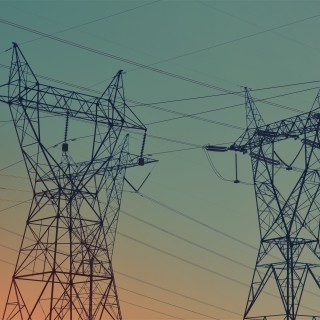
Revenues from auctioning of the national pool of ETS allowances may become the major source of financing for low-emission modernization of energy sector in the coming decade (2021-2030).
8.6.2016 -
How to ensure that the consumer improves the security of the energy system and benefits from it?

Ordinary Kowalski can improve the security of the energy system and at the same time save money. It is enough to change the energy tariffs and provide up-to-date information on how much electricity we use. In winter, the power system can be offloaded by 200MW. The annual costs of households could fall by as much as 160 PLN.
1.2.2017 -
Efficient use of Modernization Fund

On October 24, 2014, the European Council established the Modernization Fund (MF) for years 2021–2030 supplied with revenue from the sale of 2% of the total pool of CO2 emission allowances. The instrument is to support the modernization of power system and the improvement of energy efficiency in EU Member States, where GDP per capita in 2013 was lower than 60% of EU average (in nominal terms).
25.5.2015 -
Electricity and industrial competitiveness
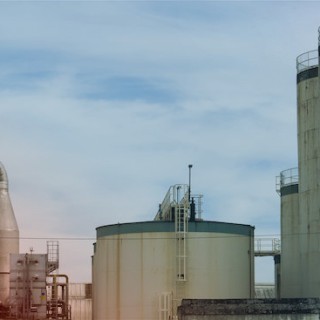
Industrial competitiveness is at the centre of the Polish debate about the future (and the logic) of climate and energy policy. There is a widely held opinion that low prices are the most important condition for a thriving industry.
19.12.2014 -
Poland's Energy Policy 2040 in the spotlight

Probable delays of the nuclear energy project, insufficient attention to energy costs and the risk of non-compliance with EU climate and energy targets – these are some of the comments of Forum Energii on the draft Poland’s Energy Policy.
15.1.2019 -
Why compensations of power prices can cause more harm than good

This is the first time such an unexpected turn of events has occurred in the energy sector. The government lost control of the strategic economy sector and seems surprised with the increase in prices and rising import of coal, gas and electricity. This unexpected situation has led to huge astonishment at a time when elections are imminent.
21.1.2019 -
Good heating practices from Denmark and Germany. Conclusions for Poland

Currently Poland faces a choice of long-term action plan in heating. As part of the Clean Heat project Forum Energii took a deep insight into experiences of Denmark and Germany, which significantly modernized their heat supply systems and improved air quality at the same time.
23.1.2019 -
Flexibility of the Polish power system | Diagnosis, potential, solutions

Flexibility of the power system means its ability to maintain uninterrupted operation under conditions of rapid and huge fluctuations in electricity consumption generation. It is an inherent part of the system design and control of its operation. In the analysis, Forum Energii puts forward solutions supporting the improvement of the national power system flexibility. In addition to reducing the costs of the power sector and the improvement in quality and reliability of the electricity supply, their objective is to reduce emissions by the power sector.
12.2.2019 -
Clean heat 2030 | Strategy for heating
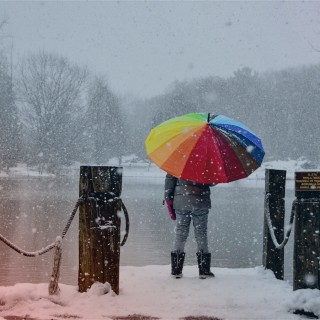
In the report "Clean Heat 2030. Strategy for heating" Forum Energii examined how to make heating no longer a source of smog in Poland by 2030 in a cost-effective and socially acceptable way. According to the analysis, health costs of pollutants can be reduced by 50% within a decade and dust emissions from individual heating by 91%. At the same time, CO2 emissions from heating will fall by 30%.
17.4.2019 -
Locational market in Poland. Security of supply, costs and the impact on the energy transition

In the latest report Locational market in Poland. Security of supply, costs and impact on the energy transition, Forum Energii recommends changes on the energy market in Poland. It is a response to the emerging problems of the Polish energy transformation - high prices, ageing infrastructure, dominant share of coal. As an example, it presents the functioning of the electricity markets in the United States.
4.7.2019 -
Small steps to big changes | Impact of the "Clean Energy..." package on power sector

We are starting to implement new EU energy regulations. Will the "Clean energy for all Europeans" package heal the Polish energy sector and give it an impulse for development? How can the energy consumer benefit from the changes? In Forum Energii's report "Small steps to big changes", we analyse the provisions of the Package and their consequences for Poland.
12.9.2019 -
Heating in Poland | 2019 edition

While the battle for new climate targets for 2050 is under way in Brussels, many Polish cities and villages are already struggling with smog. Forum Energii gathered the most important data on heating in order to highlight the importance of heating, which is treated as a poor cousin of the energy sector.
16.12.2019 -
Anti-smog roadmap for Żywiec | Clean heat by 2030
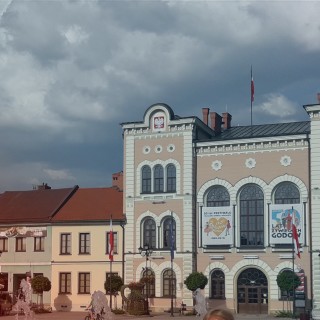
The challenge of fighting the coronavirus and the upcoming spring are distracting public attention from the problem of smog. But it will not disappear and as the boomerang will return in a few months with the start of the heating season. Especially to the towns and cities - where, like in Żywiec, more than 80% of heating energy comes from coal. In the latest report of the Forum Energii Anti-Smog Roadmap for Żywiec. Clean heat by 2030." we indicate what steps should be taken to get rid of smog by 2030. Now the report is available only in Polish, but English version will be published soon.
21.4.2020 -
Energy Boost for Poland
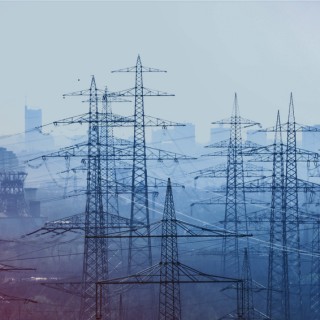
"Energy Boost for Poland" - a package for the economy prepared by the Forum Energii and Polish Confederation Lewiatan. Forum Energii and the Confederation Lewiatan call for the adoption of the "Energy Boost for Poland" package, which aims to mobilise available public and private funds for the Polish energy modernization. The implementation of the "Energy Boost for Poland" will stimulate investments worth over PLN 580 billion, which will create 240 thousand new jobs. Investments in the energy sector should be an element of the strategy for overcoming the crisis caused by the coronavirus pandemic.
11.5.2020 -
Renewables in heating

Heating and all of us in Poland have a problem. In domestic heating we rely on technologies from the 50s and 60s of the last century. In winter we have the worst quality air in the European Union. The society bears the enormous health costs related to air pollution - 120 billion PLN annually. We use primarily coal, which we are running out of, and we need to cover the costs of CO2 emission allowances. What next? Does coronavirus mean the end of dreams about clean air and the end of investments in modern technologies? Quite the opposite. Right now we should be looking at renewables.
13.5.2020 -
Poland: climate neutrality by 2050. Electrification and sector coupling

Electrification sets the direction of inevitable changes in many areas of our lives, including transport and heating. This direction will force a closer cooperation of various sectors of the economy with the future, completely different from today's power system. The integration of three industries — transportation, heat, and power generation— is the new concept for the operation of the entire energy sector. What can it look like in 2050? How will the necessary changes bring Poland closer to the goal of climate neutrality? Forum Energii in the new analysis convinces that a good strategy of sector coupling is a benefit for the Polish economy and society.
19.6.2020 -
Heat electrification in Poland | The path to clean heat
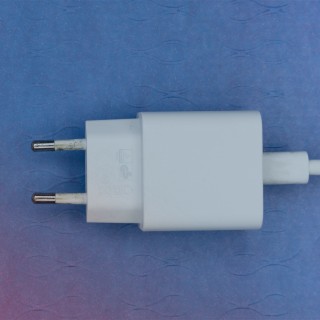
Despite the government's declarations, progress in improving air quality in Poland has been poor. The rate of modernisation of buildings is slow, and public funds continue to support the replacement of old coal boilers with other coal-fired options, which other European countries have phased out. Meanwhile, a huge stream of European money will be flowing towards 'clean heat' in the coming years. In the newest analysis from the Forum Energii, we explain why it is worth betting on electrification of heating, identify which technologies have a future, and explore how this will affect the energy system.
26.1.2021 -
Green Gases | Biomethane and hydrogen in Poland

Over the next decades, the way Europe generates energy will change significantly. The goal of achieving climate neutrality means fossil fuels will be replaced by renewable energy sources within 30 years. Playing a key role will be biomethane and green hydrogen produced from RES—green gases—the development of which should already be spearheaded Poland. It is necessary to start planning the rational use of these gases in the economy because there probably will not be enough for everyone, and some sectors will be easier and cheaper to decarbonise through electrification. Poland is already working on setting the framework for their use in various sectors of the economy. The latest report by Forum Energii may help in preparing the strategy.
25.6.2021 -
The cost of carbon-free buildings and transport: the EU’s plans and Poland's challenges
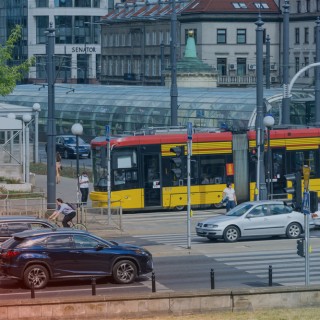
Work on the European Green Deal is accelerating. The main tool to achieve the new targets for reducing greenhouse gas emissions (GHG) in the EU will be the Fit for 55 package. Among its key elements is support for reducing CO2 emissions from buildings and transport. For Poland, this debate will be uncomfortable because over the course of three decades, not only has pollution not decreased but it has increased considerably in transport. This results in terrible air quality in Poland. Catching up, which is necessary for both climate reasons and the modernisation of outdated infrastructure and improvement of air quality, will be a challenge. The introduction of emission charges is intended to help. In its latest study, Forum Energii proposes measures to internalise the external costs of emissions in a way that is smooth, gradual, and socially acceptable.
2.7.2021 -
The district heating company of the future

Heat in Poland becomes more expensive. This is a result of an outdated business model in district heating, which rewards the company for as much heat production as possible and does not encourage to modernize the infrastructure. Meanwhile, consumers want to pay as little as possible for energy and heat. One of the key elements of the game for lower bills and lower CO2 emissions is becoming energy efficiency of heating systems and buildings. This completely changes the market conditions in which heating companies have to find themselves. If we do not want them to collapse - it is necessary to implement a new business model in district heating. Forum Energii writes about how it could look like in its latest report.
16.9.2021 -
Energy transition in Poland | 2022 Edition

On top of the economic slowdown in 2020 caused by the COVID-19 pandemic, 2021 was the next year when the cards dealt unexpected circumstances that diverged from the previous years of stability. In Europe, we experienced an energy crisis marked by sharp spikes in gas prices and CO2 emission costs. The wartime reality of 2022 means even more uncertainty and market volatility with energy security and independence from imported raw materials becoming the most important topics. Poland continues drifting along in the modernisation of the energy sector, as clearly indicated by data collected by Forum Energii in its annual report “Energy Transition in Poland”.
25.4.2022 -
Cutting energy bills before winter

The upcoming winter will be difficult for many Polish households due to high costs of heat and electricity. In the latest report by Forum Energii, more than 30 concrete measures are listed. They can be implemented easily and at a low (or even none) cost before the heating season. This will reduce bills and improve the country's energy security.
31.8.2022 -
Poland's support in the energy crisis. Last call for NRP

If Poland does not come to an agreement on the NRP in the coming months - it will be too late for sensible spending of the money available to the country. By the end of June, the Polish government may present to the European Commission changes to the spending plan for the National Recovery Plan - completed with investments to increase resilience to the energy crisis. Consultations with the EC are just starting. This is the last bell for Poland to reach for loans and grants under the the Recovery and Resilience Facility and the REPowerEU plan. How to change the Polish NRP to make it a practical response to the energy crisis?
3.4.2023 -
Energy transition in Poland | 2023 edition

2022 was another year of unexpected events. Russia’s full-scale invasion of Ukraine changed Europe’s approach to fossil fuel imports, particularly from Russia. The resulting energy crisis triggered by high gas prices and the decline in nuclear and hydroelectric production led to record high energy prices across Europe. These events are changing the way European countries look at the energy transition. Meanwhile, the modernisation of the Polish energy sector is still very slow. An overview of the increasingly comprehensive data on the energy sector is published by Forum Energii in the sixth edition of the report ‘Energy Transition in Poland. Edition 2023’.
17.4.2023 -
Past time for gas?

Over the past two years, natural gas has become a high-risk fuel: it is subject to huge price fluctuations and, following the disruption of supplies from Russia, competition for imports of this resource from other sources is increasing. Not long ago, there were plans in Poland to significantly increase the consumption of natural gas throughout the economy - by 75% by 2035. It was supposed to be a transition fuel.
14.6.2023
Insights(28)
-
Why Paris is important?

The final phase of negotiations aimed at counteracting climate change has commenced in Paris. For the first time in 8 years there is a real chance to sign a global agreement. Two countries which have been the most sceptical till now and, at the same time, responsible for the biggest greenhouse gas emissions - the USA and China, have decided to limit the emissions and, among others, to develop renewable energy resources.
4.12.2015 -
The US is withdrawing from the Paris Agreement - what does it mean?

President Donald Trump has announced the retreat of the Paris Agreement and a wish to renegotiate the global agreement. Trump's decision has a political dimension and will not have an impact on Europe's energy strategy.
2.6.2017 -
Hidden potential of district heating

Up to 2 GW of additional power in summer peaks can be supplied by the existing heat and power plants to the National Power System (NPS). This is four times more than the capacity of the new Turów power plant unit, which is currently under construction. Such a potential lies in the production of network cooling, accumulation of heat, running in "condensation" mode (without heat production) and cogeneration. Reaching for these resources will improve the security of the energy system and reduce emissions to the environment.
8.10.2018 -
Polish Energy Policy until 2040 | First commentary of Forum Energii
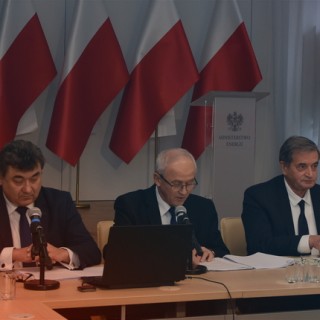
Today, the Ministry of Energy presented the State Energy Policy outline for consultation – a welcome announcement. We consider this a basis for public discussion, in which energy and environmental experts, business representatives and the broader society alike should participate. Energy affects all of our lives. Particularly at times of high energy prices we have to think about what to do next.
23.11.2018 -
Poland’s Energy and Climate Plan to 2030 – not sufficient EU perspective

The National Energy and Climate Plan 2021-2030 is the second strategic document for the Polish energy sector in addition to the long-awaited Poland’s Energy Policy until 2040. It will affect, among other things, investments in the energy sector, the implementation of our international commitments, energy security and improvement of air quality. Therefore, it should not only describe the current state of the Polish energy sector, but above all define future objectives and determine measures and actions to achieve them.
26.2.2019 -
Clean heat 2030 | Costs and benefits
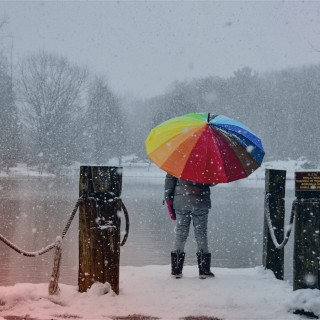
It would not be an exaggeration to say that domestic heating, both district heating and individual, is ahead of the historic bend. If we get into this turn right, we will be very successful, if not, the results may be significant.
20.5.2019 -
Power sector after the elections | Three tasks for the new government

The Polish energy sector is at a turning point. What will the next government find after the elections in the autumn? It will inherit not only electricity market, but also smog.
19.6.2019 -
Summer peaks like a boomerang

The functioning of the Polish power system in recent weeks has been very challenging. Further records of power demand are being set, although these were only expected in August, when the average temperature is highest and the water level in rivers is low. The situation is better than in the critical year 2015, but the dispersed sources appearing in the system, especially PV, are not yet optimally exploited. We need to learn how to use them.
28.6.2019 -
Will the revenues from CO2 emissions disappear into thin air?

Low emission energy transition will cost up to 200 billion EUR in the years to come. This impressive amount may suggest that Poland cannot afford to invest in the power or heating sectors. Meanwhile, building a safe and reliable system is crucial for citizens, economy and climate. It is high time to look at potential sources of financing for low-carbon modernisation, and make sure they do not vanish into the budget.
28.8.2019 -
Draft Poland's Energy Policy 2040 - new and better?

On the 8th of November 2019, the Ministry of Energy has presented an updated draft of Poland's Energy Policy until 2040. Yet, the adoption of the energy strategy will be the responsibility of the new government, including new ministries - the Ministry of State Assets and the Ministry of Climate. In our opinion, it is high time for Poland to address the climate and energy crisis. It is also important for us to start implementing the commitments made at the EU forum. The energy sector should be given a course in line with international trends, and not be allowed to float in a random direction.
29.11.2019 -
Just Transition Fund - we will benefit, but under conditions

The European Commission presented a draft regulation on the Just Transition Fund. This is an instrument to bring the UE closer to achieving climate neutrality in 2050 and prevent possible social exclusion. Although Poland proposed the creation of the fund, we missed the discussion about its shape.
15.1.2020 -
Fighting on the wrong front. Polish gvernment intends to subsidise energy consumption instead of fighting energy poverty

The Ministry of State Assets announces subsidies to energy bills for people earning less than 5 000 net per month. The reaction to the increase in electricity prices in Poland has shown that politicians are so afraid of this subject. However, they have no good idea how to solve it.
3.3.2020 -
Investment in the energy sector as a remedy for the crisis

After a few weeks of the pandemic in Poland, we know for sure that the virus will infect the economy, even as we finally get rid of it ourselves. We need to act decisively right now. But we also need to think about economic recovery, in which the low-carbon transformation of energy has to take a central place. This is the time for bold decisions, so far postponed. A strategic rebuilding of the sector must be announced today to help society emerge from the crisis and provide long-term benefits.
1.4.2020 -
The EU is ready to co-finance our energy transformation ― what does the Polish government have to say?
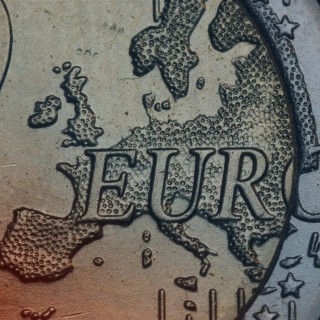
On 17 July the European Council will launch the final negotiations on the EU budget, unprecedented in scale and intended to pull the EU out of recession and give it a new boost. Since December 2019 Poland has been part of the EU discussions, trying to distance itself from climate neutrality in 2050. Although all other Member States agreed to it. For the time being, however, it seems that we may be one of the countries that will benefit most from the distribution of funds―we may gain over PLN 140 billion for the energy transition alone. Yet, the money will not be granted unconditionally. Poland needs to have a plan in place to achieve the EU's common goals―to commit to climate neutrality and to contribute to a 40% or even 55% reduction in emissions by 2030.
15.7.2020 -
Renewables in the Polish energy mix. Still not enough to meet the targets

The energy transformation has accelerated significantly. Thanks to the enormous cost reduction of solar PV and onshore wind, these technologies are increasingly being chosen by the private sector and households as an investment that allows for significant savings. In recent years, however, the development of renewable energy sources (RES) has depended on state policies and support schemes. They were to enable Poland to achieve the so-called RES target - renewables were to account for 15% of gross final energy consumption in 2020[1]. According to our estimates, the target is still far from being achieved - in 2019 the share of RES amounted to 11.5% only and everything indicates that this year too, the result of 15% is out of reach.
23.7.2020 -
Energy sector integration | Key to becoming climate-neutral by 2050

The future energy mix will be dominated by renewable energy sources (RES) with zero production costs, such as wind farms and photovoltaics. The abundance of cheap electricity will allow for the replacement of fossil fuels, both in heating and transport sectors. Effective integration of these sectors, within one energy system, will also help to solve the problem of weather-dependent RES production.
28.7.2020 -
55% ― only without panic

EU climate policy is accelerating again. The European Commission has just proposed raising the target for reducing greenhouse gas emissions until 2030 to 55%. Poland has always opposed ambitious goals, but now a breakthrough seems possible―the end of coal is inevitable, we must take care of energy security, after coronavirus we need new investments, and reducing CO2 emissions is associated with improving air quality, which the government defines as a strategic challenge. By taking these measures now, in heat, electricity and transport, emissions can be reduced by over 40%. The remaining cuts will come from the new policies on industry and agriculture and the sharing of efforts between Member States.
18.9.2020 -
Five energy projects that must happen in 2021

The future begins today, not tomorrow. The year 2020 was unusual in many ways, so many people will be relieved that it is now ending. But in terms of the energy transition, it was a watershed year. The European Union reached agreement on the European Green Deal. In Poland, the government and labour unions openly admitted that Poles need to talk about the end of the coal era. The energy sector in the country is at a crossroads and it is time for it to choose the right path for its further operation and development in 2021.
28.12.2020 -
EU Recovery Fund: 3 things Poland needs to do for the mechanism to bring real change

The National Recovery Plans are built on credit. The investments we design today must serve future generations—our children—because we all will be paying it back until 2057. It is based on concrete reforms, changes that need to happen in order to achieve the intended objectives. The consultations on the recovery plan in Poland is now coming to an end. How should we change it so that the money pays off in the future? In this opinion, I refer to the Green Energy and Energy Efficiency Component.
31.3.2021 -
FIT FOR 55 - what will the package contain?

On 14 July, the European Commission will publish the Fit for 55 package consisting of several legislative proposals. This will officially launch the discussion on measures to achieve the interim EU climate neutrality target, i.e. a 55% reduction of CO2 emissions compared to 1990. Before these rules finally come into force, they have to be accepted by EU member countries (i.e. the Council) and the European Parliament. The negotiations will take at least a year, most likely - two. The changes will not be law until 2024, but it is high time we considered how to implement them for the benefit of the climate and the economy.
13.7.2021 -
10 steps to overcome the energy crisis

The prices of coal, gas, and CO2 are reaching record levels while the price for electricity is galloping, causing panic among politicians, energy consumers, and institutions responsible for maintaining Poland’s energy security. There is a state of emergency in the Polish energy sector caused by, among other things, the situation on the energy source market, but not only. The country is also bearing the consequences of many years of postponing necessary modernisation decisions. It is time to take urgent actions that match the situation.
8.12.2021 -
The end of energy resource imports from Russia?
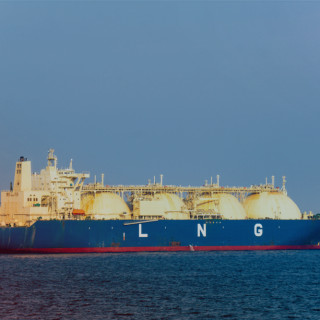
On February 24, Russia started the Ukrainian war. Nothing will be the same again. Russia's brutal attack made the ongoing conflict around energy resources all the more obvious. In 2021 alone Russia could have earned PLN 500 billion (or $120 billion). from the export of energy resources[1]. This revenue funds the Kremlin's military spending. Now we are considering whether giving up Russian fossil fuels is possible. Undoubtedly, this would be a radical solution with far-reaching and not entirely known consequences. If this were to happen, solidarity and close cooperation within the EU would be more important than ever before. In this article, we analyze what options Poland has to break its energy dependence on Russia.
28.2.2022 -
Is the Kremlin turning off the gas tap? Time to exclude gas and coal from households
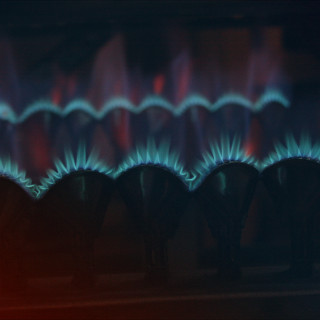
How to prepare households for an energy war with Russia? Gazprom is suspending gas supplies to Poland under the Yamal contract. This is no great surprise. At the end of this year, Poland was going to give up buying Russian gas anyway. Physically, there is unlikely to be a shortage of gas, but Poland is entering a period of high prices, which will limit the use of this raw material. The role of the state should be to wisely support society in smoothly passing through the crisis. Without reducing demand in sectors where it is possible, this will be difficult.
28.4.2022 -
Whom to ask how Poland spends billions from the Modernisation Fund?

The European Union has decided to allocate 2% of the allowances from its emissions trading system (EU-ETS) for support to poorer countries in their energy transition. Since 2021 this money is transferred to Poland, among others. The local operator – the National Fund for Environmental Protection and Water Management – has been distributing the funds without adequate public scrutiny and information. A year after taking charge of the Modernisation Fund, there is no transparent website to adequately inform society and potential applicants on what and how over EUR 11 bn (PLN 50 bn) is to be spent (and a further increase is on the table). This article deals with the consequences of the current flaws in this process and why their removal is so important for Poland.
23.5.2022 -
RRP: The bare minimum for over €9bn

With one year delay the national Recovery and Resilience Plan (RRP) is entering Poland. So far, the discussion around the RRP has focused primarily on money. Meanwhile – and this is particularly evident in the area of energy transition – the RRP is an instrument that has mobilised the Polish government to work out the necessary reforms, involving an in-depth analysis of challenges ahead, assessment of specific solutions, and necessary legal changes, all within specific timeframe. Investment support – although crucial – plays a secondary role in accelerating the implementation of reforms.
2.6.2022 -
Renewables can reduce fuel imports

Last year the import of gas, oil and coal cost Poland PLN 89 billion. This year, it will be much more - by the end of June it already amounted to PLN 85 billion[1]. The supply crunch and spike in fuel prices have become the source of an economic and energy crisis, and a means of exerting pressure on Europe. Meanwhile, renewables not only reduce emissions and energy prices, but also import dependency on energy resources.
29.11.2022 -
Conclusions from the 7th capacity market auction - cleaner, but adequacy remains a challenge

The results of the seventh auction in the Polish capacity market clearly show the dilemma Poland has faced - existing high-carbon (coal) capacity can no longer be supported with this mechanism, while gas is risky due to the geopolitical situation. Although Polish energy companies have not completely abandoned gas projects, fewer appeared in the auction than previously announced. There is also clearly a greater variety of technologies than before - for the first time, contracts were granted to storage. The market is still expensive - for the second year in a row auctions ended in the first round and at the maximum price.
20.1.2023 -
Europe needs a new energy security strategy

The European Union’s Energy Security Strategy was adopted in 2014, shortly after Russia’s annexation of Crimea. By now, not all of it has been implemented, and some of its points are outdated. After ten years and Russia’s full-scale attack on Ukraine—and in the era of a climate crisis—the EU’s energy security strategy needs to be rewritten. The basis of this strategy should be a cost-effective, but also decentralized, digitalized and decarbonized energy system based on renewable sources in which energy efficiency plays the key role. Such a future is worth fighting for.
28.7.2023
Events(3)
-
Panel expert meeting | International heating strategies | Recommendations for Poland
11.6.2018 CZIiTT, Politechnika Warszawska ul. Rektorska 4, Warszawa
Forum Energii is leading a project "Clean Heat" that aim is to support the development of a Polish country heating strategy in the context of European 2030 CO2 targets and heavy air pollution. The panel of experts on the June 11, 2018 is an element of this project and was dedicated to transition strategies of the heating sector in Europe.
-
Forum Energii for Cities - webinar series
9.4–25.6.2020
Our the LeadAIR programme continues! We are starting the next stage: webinars addressed to local government officials and other people looking for specific hints and inspirations in actions to improve air quality and energy efficiency. We help cities to overcome smog! The webinar series in the Forum Energii for Cities series is open to all interested people, but aviable in Polish only.
-
Conference | European Energy Security: One Year into Russia's war in Ukraine
19.4.2023 Warszawa
Forum Energii and ECFR Warsaw Office invite you to attend the conference "European energy security". One year after the start of Russia's full-scale invasion of Ukraine, we want to create a space to reflect on how the events of recent months are affecting energy security in Europe and what the priorities should be in the coming period. >>>Click to watch a video of the conference<<<
